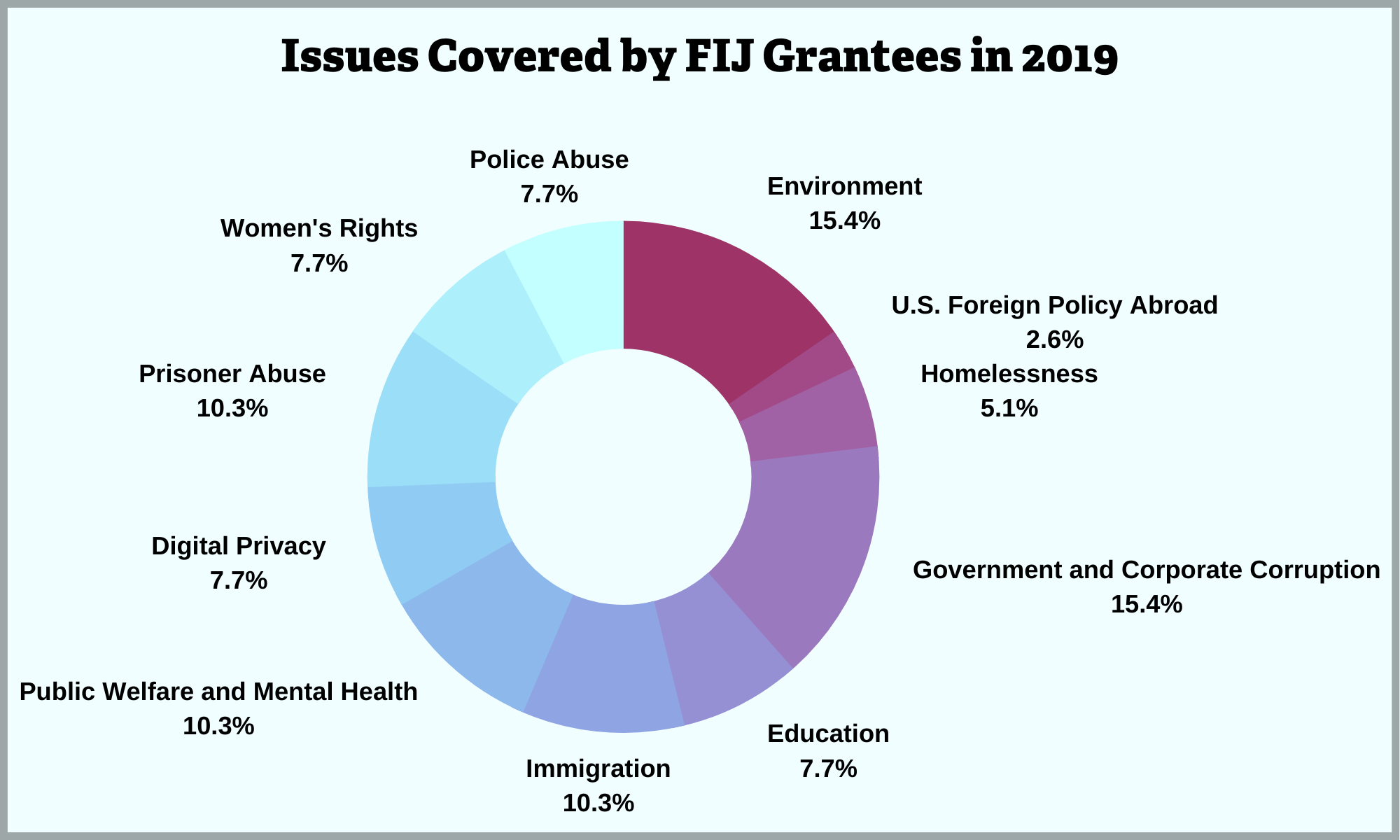It all starts with our grantees – the reporters and investigative journalists who commit their lives to uncovering, unraveling and documenting the stories that impact the world most. From migrant abuse at the border to the Flint, Michigan, water crisis and beyond, our grantees reported on a diverse array of issues in 2019. Below, we give you a breakdown of the issues our grantees covered last year and some examples of their work.
In Massachusetts, FIJ grantee Shawn Musgrave documented prosecutorial misconduct and evidence tampering in drug offense cases for Reason Magazine, which resulted in the state having to throw out more than 47,000 convictions. And in Flint, Michigan, grantees Abby Ellis and Kayla Ruble investigated and uncovered the extent of a deadly Legionnaires’ disease outbreak during the water crisis, and how city officials failed to identify and address it. Their documentary titled “Flint’s Deadly Water,” was released by Frontline.
Our grantees also focused heavily on issues affecting the environment. In Washington state, John Stang documented how environmental groups are attempting to hold the U.S. Navy accountable after their dismantling of two decommissioned aircraft carriers left tons of toxic, copper-laden debris in Puget Sound. According to Stang’s reporting for Cascadia Magazine, environmental groups warn that the toxins left by the Navy could have deadly effects on the salmon population there. And in an isolated national refuge in Alaska, Jane Kay and photographer Ash Adams explored the impact of a Trump administration-approved road that could have a devastating effect on the wildlife and people living there in an article for Reveal.
Covering topics from corruption to women’s rights to police abuse, our grantees showed incredible commitment to journalism in 2019. The stories highlighted here, as well as the 39 other investigations completed by our grantees last year, can all be found on our website under “Grantees Work.”




